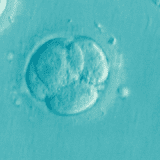Tips and strategies for strengthening the immune system during pregnancy are crucial for promoting overall health and well-being for both mother and baby. Pregnancy is a time when the immune system undergoes changes to support the growing fetus, making it even more important to prioritize immune health. By following these tips, expectant mothers can give their immune system the boost it needs to stay strong and protect against illnesses.
Eating a Nutrient-Rich Diet
Eating a nutrient-rich diet is crucial for supporting immune function during pregnancy. When you’re pregnant, your body needs an extra dose of vitamins, minerals, and antioxidants to keep both you and your baby healthy. A balanced diet that includes a variety of fruits, vegetables, whole grains, lean proteins, and healthy fats can provide the necessary nutrients to boost your immune system.
One way to ensure you’re getting a wide range of nutrients is to incorporate a colorful array of fruits and vegetables into your meals. These vibrant foods are packed with vitamins and minerals that can strengthen your immune system. Aim for a rainbow of colors on your plate, including leafy greens, oranges, reds, blues, and yellows. Additionally, include whole grains like quinoa, brown rice, and whole wheat bread, which are rich in fiber and essential nutrients.
Lean proteins, such as chicken, fish, and tofu, are also important for immune health during pregnancy. Protein helps build and repair tissues, including those of the immune system. Furthermore, healthy fats found in foods like avocados, nuts, and olive oil can provide anti-inflammatory benefits and support immune function.
Incorporating antioxidants into your diet is another key factor in supporting your immune system during pregnancy. Antioxidants help protect your cells from damage caused by free radicals and can be found in foods like berries, dark chocolate, and green tea. These powerful compounds can help strengthen your immune system and reduce the risk of infections.
It’s important to note that every woman’s nutritional needs may vary during pregnancy, so it’s best to consult with a healthcare provider or a registered dietitian to create a personalized meal plan. They can help ensure you’re getting all the necessary nutrients to support your immune system and the healthy development of your baby.
Getting Sufficient Sleep
Getting sufficient sleep is crucial for maintaining a healthy immune system during pregnancy. Sleep plays a vital role in supporting overall immune health and promoting the well-being of both the mother and the baby. During pregnancy, the body undergoes various changes, and adequate rest becomes even more important to support the immune system.
Research has shown that lack of sleep can weaken the immune system, making pregnant women more susceptible to illnesses and infections. It is recommended that pregnant women aim for around 7-9 hours of sleep per night to ensure optimal immune function. However, achieving quality sleep can sometimes be challenging due to discomfort, hormonal changes, and other pregnancy-related factors.
To establish a healthy sleep routine during pregnancy, consider the following tips:
- Create a relaxing bedtime routine: Engage in calming activities such as reading a book, taking a warm bath, or practicing gentle stretches before bed to signal to your body that it is time to wind down.
- Create a comfortable sleep environment: Invest in a supportive mattress and pillows that cater to your changing body. Use blackout curtains or an eye mask to block out any excess light that may disrupt your sleep.
- Avoid stimulants: Limit your intake of caffeine and avoid consuming it close to bedtime as it can interfere with your ability to fall asleep.
- Establish a consistent sleep schedule: Try to go to bed and wake up at the same time each day to regulate your body’s internal clock and promote better sleep quality.
- Practice relaxation techniques: Deep breathing exercises, meditation, and gentle yoga can help calm the mind and prepare the body for sleep.
By prioritizing sufficient sleep and implementing these tips, you can support your immune system during pregnancy and enhance your overall well-being. Remember to consult with your healthcare provider for personalized advice and guidance on maintaining a healthy sleep routine throughout your pregnancy.
Managing Stress Levels
Managing stress levels is crucial for maintaining a healthy immune system during pregnancy. Stress has a significant impact on the body, including the immune system, and can weaken its ability to fight off infections and illnesses. When pregnant, it’s especially important to prioritize stress management to support both the well-being of the mother and the development of the baby.
One effective stress management technique is practicing relaxation techniques. Deep breathing exercises and meditation can help calm the mind and reduce stress levels. These techniques promote a sense of relaxation and can have a positive impact on the immune system. Taking a few moments each day to focus on deep breathing or engaging in a guided meditation can significantly reduce stress and support immune health during pregnancy.
In addition to relaxation techniques, engaging in physical activity is another great way to manage stress and boost the immune system. Regular exercise releases endorphins, which are natural mood lifters, and can help reduce stress levels. It’s important to choose safe and suitable activities during pregnancy, such as prenatal yoga or swimming, to ensure the well-being of both the mother and the baby. Staying active not only helps manage stress but also improves overall health and strengthens the immune system.
It’s important to remember that managing stress levels during pregnancy is a personal journey, and what works for one person may not work for another. It’s essential to explore different stress management techniques and find what resonates best with you. Whether it’s practicing relaxation techniques, engaging in physical activity, or seeking support from a healthcare provider, finding effective ways to manage stress can have a significant impact on immune health during pregnancy.
Practicing Relaxation Techniques
During pregnancy, it is important to prioritize relaxation and stress management for the overall health and well-being of both the mother and the baby. Practicing relaxation techniques can not only help reduce stress but also support immune health during this crucial time. There are various techniques that pregnant women can incorporate into their daily routine to promote relaxation and boost their immune system.
One effective relaxation technique is deep breathing exercises. Deep breathing involves taking slow, deep breaths, filling the lungs with air, and then slowly exhaling. This technique helps activate the body’s relaxation response and can help reduce stress levels. It is a simple yet powerful technique that can be practiced anywhere, anytime. Taking a few moments each day to focus on deep breathing can have a significant impact on overall well-being.
Another relaxation technique that can support immune health during pregnancy is meditation. Meditation involves focusing the mind and calming the body, which can help reduce stress and promote a sense of inner peace. There are various forms of meditation, such as guided meditation, mindfulness meditation, and transcendental meditation. Pregnant women can choose the technique that resonates with them and incorporate it into their daily routine.
In addition to deep breathing exercises and meditation, there are other relaxation techniques that can be beneficial during pregnancy. These include progressive muscle relaxation, where each muscle group is tensed and then relaxed, and visualization, where the mind is guided to imagine a peaceful and calming scene. These techniques can help reduce stress and create a sense of calmness, which can ultimately support immune health.
It is important for pregnant women to prioritize relaxation techniques and find what works best for them. Incorporating these techniques into a daily routine can help reduce stress, promote overall well-being, and support the immune system during pregnancy. By taking the time to relax and unwind, pregnant women can create a positive environment for both themselves and their growing baby.
Engaging in Physical Activity
Engaging in physical activity during pregnancy can provide numerous benefits for both the immune system and overall well-being. Regular exercise has been shown to support immune function, reduce the risk of certain pregnancy complications, and improve mood and energy levels.
When it comes to choosing safe and suitable activities, it’s important to listen to your body and consult with your healthcare provider. Generally, low-impact exercises such as walking, swimming, and prenatal yoga are considered safe options for most pregnant women. These activities help improve circulation, strengthen muscles, and promote a healthy weight gain.
It’s important to avoid high-impact exercises or activities that carry a risk of falling or injury. Contact sports, heavy weightlifting, and activities with a high risk of abdominal trauma should be avoided during pregnancy.
Remember to warm up before exercising and cool down afterwards to prevent muscle strain. Stay hydrated by drinking plenty of water before, during, and after your workout. If you experience any pain, dizziness, or shortness of breath during exercise, stop immediately and consult your healthcare provider.
Engaging in regular physical activity during pregnancy can not only boost your immune system but also improve your overall health and well-being. It’s a great way to stay active, reduce stress, and prepare your body for the physical demands of labor and childbirth. So lace up your sneakers and get moving for a healthier pregnancy!
Staying Hydrated
Staying hydrated during pregnancy is crucial for supporting the immune system and promoting overall health. Water plays a vital role in various bodily functions, including maintaining the balance of fluids, regulating body temperature, and aiding digestion. When you’re pregnant, your body needs even more water to support the growth and development of your baby.
Drinking an adequate amount of water helps to flush out toxins from your body and keeps your immune system functioning optimally. It also helps to prevent common pregnancy discomforts such as constipation and urinary tract infections. Dehydration can weaken the immune system, making you more susceptible to illnesses and infections.
To ensure you stay hydrated during pregnancy, here are some helpful tips:
- Drink at least 8-10 glasses of water per day. Carry a water bottle with you to remind yourself to drink regularly.
- Include hydrating foods in your diet, such as fruits and vegetables with high water content, like watermelon, cucumber, and oranges.
- Avoid or limit the consumption of caffeinated and sugary beverages, as they can dehydrate you.
- If you find it difficult to drink plain water, try infusing it with slices of lemon, cucumber, or mint for a refreshing twist.
- Set reminders on your phone or use a hydration tracking app to help you keep track of your water intake throughout the day.
Remember, staying hydrated is not only important for your immune system but also for the overall well-being of both you and your baby. Make it a priority to drink enough water and incorporate hydrating habits into your daily routine.
Taking Prenatal Vitamins
Taking prenatal vitamins is an essential part of maintaining a healthy immune system during pregnancy. These specialized supplements are specifically designed to provide the necessary nutrients that support both the mother’s and the baby’s immune health. Prenatal vitamins contain a combination of vitamins and minerals that are crucial for the development of the baby and the overall well-being of the mother.
One of the key nutrients found in prenatal vitamins is folic acid, which plays a vital role in the formation of the baby’s neural tube and helps prevent certain birth defects. Additionally, prenatal vitamins often contain iron, which is essential for carrying oxygen to the baby and supporting the mother’s immune system. Iron deficiency during pregnancy can lead to anemia, which can weaken the immune system and increase the risk of infections.
In addition to folic acid and iron, prenatal vitamins may also contain other essential nutrients such as calcium, vitamin D, and omega-3 fatty acids. Calcium is crucial for the development of the baby’s bones and teeth, while vitamin D helps the body absorb calcium and supports the immune system. Omega-3 fatty acids, commonly found in fish oil, are important for the baby’s brain development and can also help reduce inflammation in the mother’s body.
When choosing prenatal vitamins, it is important to look for a brand that provides the recommended daily amounts of these essential nutrients. It is also advisable to consult with a healthcare provider to ensure that the prenatal vitamins are suitable for individual needs. Every woman’s nutritional requirements may vary, so personalized advice from a healthcare professional can help ensure proper immune system support during pregnancy.
Consulting with a Healthcare Provider
Consulting with a healthcare provider during pregnancy is crucial for ensuring proper immune system support and overall well-being. Your healthcare provider is a trusted source of information and guidance, equipped with the knowledge and expertise to address your specific needs and concerns.
During pregnancy, your immune system undergoes changes to accommodate the growing fetus. It is important to have regular check-ups with your healthcare provider to monitor your immune system function and address any potential issues. They can provide personalized advice on how to optimize your immune system and promote a healthy pregnancy.
Your healthcare provider will assess your medical history, conduct necessary tests, and recommend appropriate interventions to support your immune system. They can help identify any underlying conditions or risk factors that may impact your immune health and develop a tailored plan to address them.
In addition to immune system support, your healthcare provider can also provide guidance on other aspects of your pregnancy, such as nutrition, exercise, and stress management. They can recommend specific prenatal vitamins or supplements that can further support your immune system.
Regular communication with your healthcare provider allows for ongoing monitoring and adjustments to your immune system support plan as needed. They can answer any questions or concerns you may have and provide reassurance throughout your pregnancy journey.
Remember, every pregnancy is unique, and what works for one person may not work for another. Consulting with a healthcare provider ensures that you receive personalized advice and care that is tailored to your specific needs and circumstances. By working together, you can optimize your immune system support and promote a healthy pregnancy for both you and your baby.
Frequently Asked Questions
- 1. Can I boost my immune system during pregnancy?
Yes, you can boost your immune system during pregnancy by following a few key strategies. It is important to eat a nutrient-rich diet, get sufficient sleep, manage stress levels, stay hydrated, and take prenatal vitamins. Consulting with a healthcare provider can also provide personalized advice for immune system support.
- 2. How does a nutrient-rich diet help strengthen the immune system during pregnancy?
A nutrient-rich diet is essential for supporting the immune system during pregnancy. Consuming a balanced diet rich in vitamins, minerals, and antioxidants helps provide the necessary nutrients to support immune function and overall health for both mother and baby.
- 3. What is the link between sleep and immune health during pregnancy?
Sleep plays a crucial role in maintaining a healthy immune system during pregnancy. Sufficient sleep allows the body to repair and regenerate cells, which is essential for optimal immune function. Establishing a healthy sleep routine can help support immune health.
- 4. How can I manage stress levels to support my immune system during pregnancy?
Managing stress levels is important for maintaining a strong immune system during pregnancy. Practicing relaxation techniques, such as deep breathing exercises and meditation, can help reduce stress and support immune health. Engaging in regular physical activity is also beneficial.
- 5. Why is staying hydrated important for the immune system during pregnancy?
Staying hydrated is crucial for supporting the immune system during pregnancy. Sufficient water intake helps transport nutrients, flush out toxins, and maintain proper bodily functions. It is recommended to increase water intake to support immune health.
- 6. How do prenatal vitamins contribute to boosting the immune system during pregnancy?
Prenatal vitamins play a vital role in supporting the immune system during pregnancy. They provide essential nutrients, such as vitamins C, D, and E, as well as folic acid and iron, which are important for immune function. It is recommended to consult with a healthcare provider for personalized advice on prenatal vitamins.
- 7. Why is it important to consult with a healthcare provider for immune system support during pregnancy?
Consulting with a healthcare provider is important to ensure proper immune system support during pregnancy. They can provide personalized advice based on individual needs and medical history. They can also guide you on the appropriate prenatal vitamins and essential nutrients to look for.











